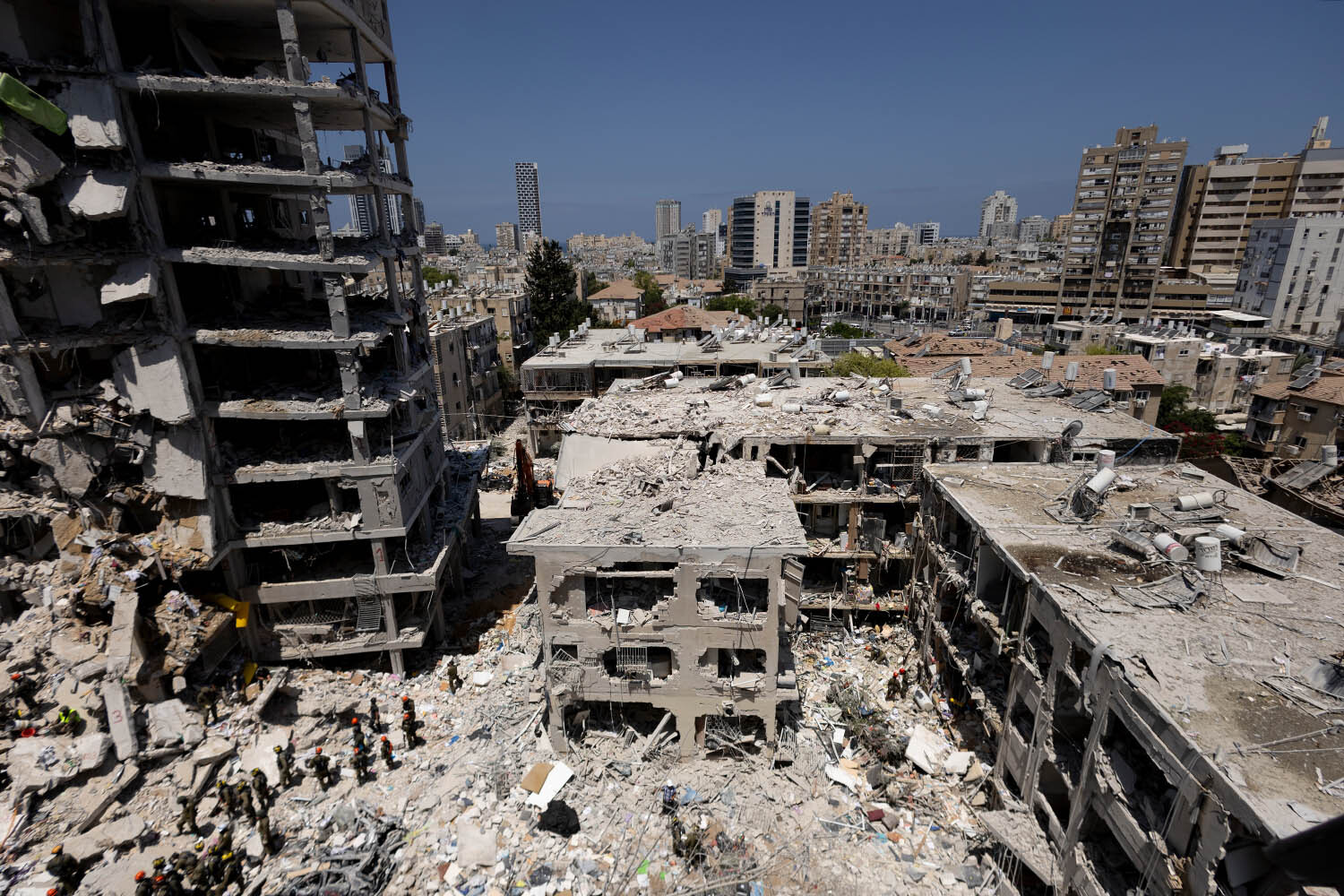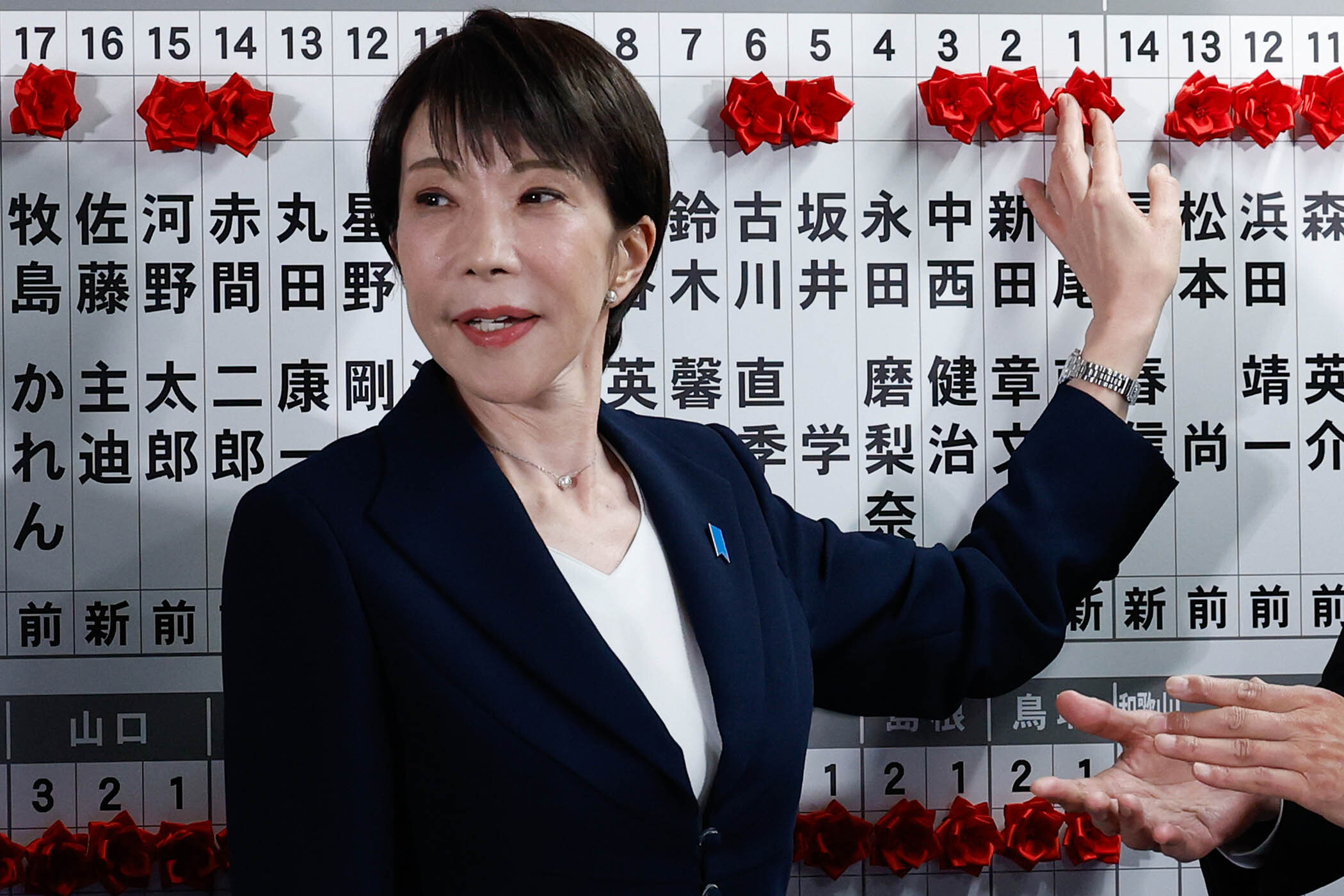A prominent Persian-language TV station reported yesterday that a top aide to Ayatollah Khamenei had been assured by a senior Russian official that he and his family would be evacuated from Iran if Israel’s bombardment of the country continued to escalate.
So what? A single report from an anti-regime channel should be treated with caution. For 46 years the Islamic Republic has held a ruthless and centralised grip on power in Iran that it won’t give up easily. But Israel’s escalating efforts to dismantle the regime on three fronts have put it in its most fragile position since the early days of the revolution.
Proxies. Before October 7, Iran extended its power across the Middle East by propping up a so-called Axis of Resistance with arms and money. But over the past 18 months, Israel has systematically taken apart this network by
•
wiping out the majority of Hamas’s military and political leadership in Gaza;
•
subjecting Hezbollah to a painful war in Lebanon in which it assassinated its top leaders and severely degraded its missile and rocket arsenal; and
•
destroying the majority of Syria’s strategic military assets and launching a ground incursion to create a buffer zone between itself and the rebels that toppled Assad.
Places. With these threats diminished, Israel directly attacked Iran on Friday morning by striking dozens of targets with warplanes and drones. As well as bombing residential areas, it has
•
damaged missile and radar bases across the country;
•
hit key nuclear sites at Natanz, Fordow and Isfahan; and
•
claimed air superiority from western Iran to Tehran in the north.
People. Israel has slowed Iran’s response to its attacks with targeted assassinations that suggest Mossad’s deep infiltration into the regime’s security establishment. Trump reportedly vetoed a plan for Israel to kill the supreme leader, but top brass eliminated so far include
•
several nuclear scientists;
•
the chief of staff of Iran’s armed forces; and
•
the head of the powerful Islamic Revolution Guards Corps and its intelligence chief.
The gamble. If this is the hard bit, what comes next will be even harder. Benjamin Netanyahu has two main aims, but it’s quite possible that neither is achievable by military might alone.
Regime change. Netanyahu has been itching to attack Iran for years but was held back in large part by US fears that doing so might backfire. With Trump in power and Iran’s proxies weakened, Israel’s prime minister has seized an opportunity to try to neutralise Tehran.
Related articles:
But Netanyahu knows that toppling the Islamic Republic will require a sustained effort from within the country. In a televised address on Friday, he spoke directly to the Iranian people and reminded them of a slogan used in past demonstrations: “Woman, Life, Freedom.”
Disarmament. Israel feels its existence is at stake if Iran succeeds in building a nuclear weapon. But the regime’s development sites are located deep underground and it’s not clear whether they have sustained any serious damage so far. The head of Israel’s national security council said on Friday that the country’s nuclear programme “cannot be destroyed by kinetic means”. That is, Iran will have to get back around the table with the US.
Newsletters
Choose the newsletters you want to receive
View more
For information about how The Observer protects your data, read our Privacy Policy
The price of failure. If the regime stays in place and its nuclear programme remains intact, Israel is likely to have made a tense situation a whole lot worse. What could come next includes:
More war. Iran is believed to have one of the largest missile stockpiles in the Middle East and could continue to attack Israel for weeks, causing deaths and prolonged chaos in a country that is not entirely protected by the Iron Dome.
Wider war. The US and the UK, which has moved fighter jets to the region, could be pulled in to support Israel. The Houthis in Yemen, Shia militias in Iraq, and what remains of Hezbollah could rally behind Iran. Other countries and forces could join the fray.
Nuclear escalation. If Iran’s reactors, which lie deep below ground, survive with little or no damage, Ayatollah Khamenei may decide to escalate the country’s bomb building programme. He may take North Korea as a blueprint – its store of nuclear weapons are seen as a deterrent against outside attempts at intervention.
The price of success… Regime change would bring its own dangers. It was the power vacuum left after the overthrow of the Shah that allowed the Islamic Republic to take control in 1979. There is no reason why any successor to the current rulers would be more amenable to Israel.




